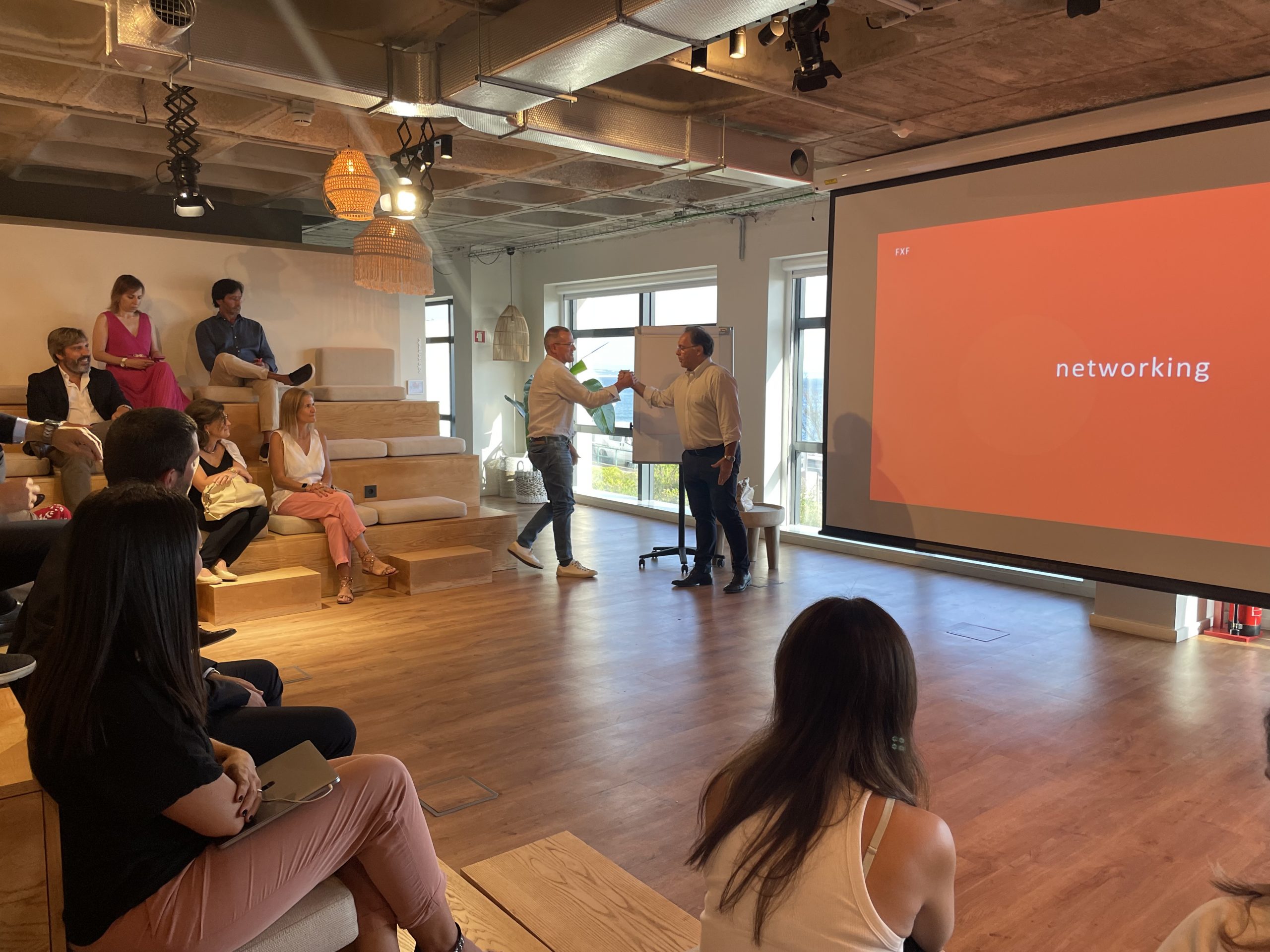Beloved by some, viewed with suspicion by many others, Networking today occupies a prominent role in the lives of professionals and organizations. It quickly passed from an almost total lack of knowledge to a discipline that deserves analysis and reflection. That begins to leave empiricism to be supported by studies that justify it.
But is Networking just a set of techniques? Is it just to be done by uninhibited people who have no trouble making conversation with one another? Or will it be something else? A set of rules, accelerators and even principles?
It was in order to obtain answers to these and other questions that we invited Francisco X. Froes to our September WYtalk. WYtalks are conversations open to our friends and guests that take place every month on the WYgroup with a guest, and that address the most varied topics, always at the Casa da Praia Amphitheater.
Francisco X. Froes holds a degree in management from Universidade Católica, an MBA from Nova, a postgraduate degree from Insead in Leadership and Crisis Management. He is now the president of Nova’s AMBA. His definition of Networking could not be more straightforward, “it is the ability to create, maintain and grow value-added relationships”, he says. Added value for both parties, because knowing is not enough, we must always give something in order to receive something in return. But that something has to be valued by the other party. “At the limit, we are asking for time from those we want to know, time is our most valuable asset and no one likes to waste it. I have to bring something to this relationship, to this meeting, otherwise, by not adding anything, I will surely lose the connection.”
But Networking, goes much further. It adds value in a friendship, in an acquaintance, in a family relationship. Francisco divides Networking into three parts: Its Nature, its Science and its Art. The first two are common to all of us. The third is personal and non-transferable. As an analogy, we can see Networking with a building. In this case, its nature is its foundations, where the first pillar is the need for cooperation. Nothing in this world, star, comet, asteroid whatsoever, exists without the cooperation of other stars, comets, asteroids, galaxies, black holes. In our nature is cooperation.
From theory we moved on to practice and the following exercise showed how cooperation and Networking can help to eliminate barriers and obstacles. In an audience of more than 30 people who did not know each other, one of them was asked who she would like to meet in the world. The person answers without hesitation: Barack Obama. And Francisco asks the feared question: How to reach him without using social networks. Does anyone remember that it will be easy if we can do it through Eng. Guterres, to what another person says, that President Marcelo would be the step prior to that contact. Finally, another participant reports that he knows someone who works directly with Obama himself. In other words, in 3 contacts we would reach our supposedly unreachable goal. It is possible to get there, but in order to achieve it we have to define well what we want and what we bring to the table, because without relevance and counterpart, relationships do not develop and do not necessarily take place.
There are, however, many myths regarding Networking. The first and the strongest tells us that Networking is for uninhibited and extroverted people. But will it really be so? We asked Francisco X. Froes the question, and his answer could not be more forceful: “Extroverts draw their energy from other people, events and outside happenings. Introverts, to their analyses, introspections, thoughts with themselves. Now, for an extrovert it’s very easy to make a contact, so if that one doesn’t, he quickly jumps to the next one. Not for an Introvert. So each contact is made carefully and with attention, it invests in the relationship and that turns it into something much more productive. In the end, there is a balance, because what one gains in number of contacts, the other gains in the effectiveness with which he builds relationships”.
As a corollary of Networking and its capabilities, Francisco told us about his three golden rules – those that without their application no one will obtain results – and their simplicity is as impressive as their importance: Be generous, available to listen and to serve the other. All of us by practicing these three simple rules with our clients, friends and family will be able to create more positive, lasting and more meaningful relationships. Because in the end we are giving an important part of ourselves to the other without expecting anything in return. What will happen next is the principle of reciprocity, the need that the other has to give in return for having received so much without asking for anything. And Networking starts from here.
If you want to know more about this interesting discipline, Francisco X. Froes has a set of programs with a longer or shorter duration that can be customized according to the needs of the audience. And he can be contacted at [email protected].
In the case of WYgroup we are strong advocates of strong and lasting relationships. All those who attended this session of Francisco wanted to know more. Because Networking is all about people and for people. At its base and in its thinking are personal relationships that not all technology can replace. Technology can help bring you closer, connect and sometimes maintain. But without real personal contact, the strength level of the relationship is substantially lower and less effective. People want to be with people. And although the last years of our lives have “forced” us to live further apart, the truth is that we are cooperative and social beings by nature. That said, Networking is nothing more than a person to be human.
Originally published at Líder Magazine.
